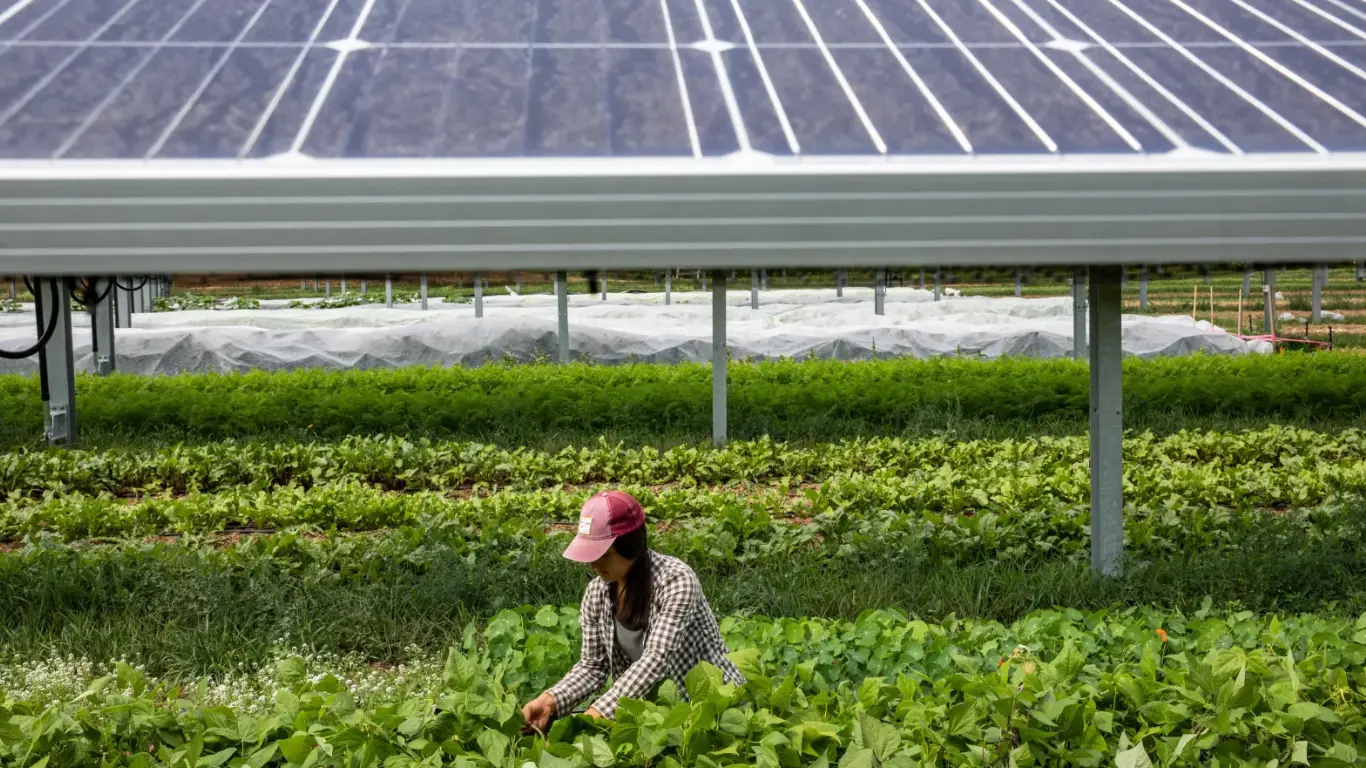Vahini Yojana, a Maharashtra based solar scheme by the government, is set to revolutionize the state’s agricultural sector by providing farmers with affordable solar power, thus boosting productivity and sustainability while significantly reducing energy costs. This initiative introduced under the leadership of the Chief Minister aims to transform farming practices sustainably, thus supporting both economic growth and environmental goals.
Overview of Vahini Yojana
The Chief Minister's Solar Agriculture Initiative Vahini Yojana is designed to turn solar energy into a reliable daytime electricity source for farmers. Solar farms with capacities ranging from 2 MW to 10 MW are being developed within 5 km of substations in agricultural regions, minimizing transmission losses and making Maharashtra's solar agriculture model one for others to follow.
The government has allocated Rs 3,700 crore to this effort, with the goal of providing uninterrupted 12-hour electricity to drive farm transformation. This initiative is expected to substantially lower electricity bills for many farmers, making agriculture more feasible and sustainable. Additionally, it contributes to reducing carbon emissions, aligning with global efforts to combat climate change.

Solar Agriculture
The scheme offers attractive land lease rates to encourage participation. State government land is leased to farmers at a nominal rate of Rs 1 per year, while private land is leased at Rs 3,000 per acre per year for a period of 30 years. This economic incentive is designed to attract widespread adoption of Maharashtra's new Solar Agriculture initiative.
Eligible participants must be natives of Maharashtra and possess formal rights to the land they wish to use for agriculture. The scheme is open to a broad cross-section of the agricultural population, including individual farmers, self-help groups, cooperatives, sugar mills, and agricultural panchayats.
Benefits for Farmers
Maharashtra's Solar Agricultural scheme, Vahini Yojana, is expected to provide consistent, low-cost electricity to hundreds of farming families. By ensuring a regular and reliable power supply, the initiative will enhance farm productivity, improve the quality of life for farmers, and reduce dependence on expensive, conventionally generated electricity. With increased yields and income, farmers can look forward to a more sustainable and prosperous future.
The state government's commitment to this program is evident through its financial and policy support, which is part of a broader effort to develop renewable energy and environmentally friendly farming practices. This initiative also aims to reduce the carbon footprint associated with crop irrigation and energy consumption in rural areas.
Prospects of Maharashtra's Solar Agriculture Initiative
Maharashtra's Solar Agriculture initiative is set to expand with plans to develop more renewable energy infrastructure in the state. As more farmers adopt solar technology, the sector will become more resilient and better equipped to handle climate change-related challenges and energy shortages.
This bold step towards environment-friendly and economically viable farming practices paves the way for enhanced energy security. By integrating solar energy into agriculture, Maharashtra is setting an example of how forward-thinking policies and active community participation can drive successful sustainable development.
In conclusion, Maharashtra's Solar Agriculture initiative marks a significant move towards a greener and more sustainable future. By embracing solar energy, the state is not only improving rural productivity but also ensuring a brighter and more secure energy future. This program demonstrates the potential of combining innovative energy solutions with agricultural development to achieve long-term economic and environmental benefits.
